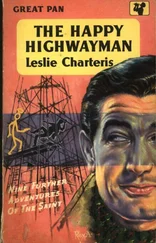Brand Whitlock - The Happy Average
Здесь есть возможность читать онлайн «Brand Whitlock - The Happy Average» — ознакомительный отрывок электронной книги совершенно бесплатно, а после прочтения отрывка купить полную версию. В некоторых случаях можно слушать аудио, скачать через торрент в формате fb2 и присутствует краткое содержание. Жанр: foreign_prose, foreign_antique, на английском языке. Описание произведения, (предисловие) а так же отзывы посетителей доступны на портале библиотеки ЛибКат.
- Название:The Happy Average
- Автор:
- Жанр:
- Год:неизвестен
- ISBN:нет данных
- Рейтинг книги:5 / 5. Голосов: 1
-
Избранное:Добавить в избранное
- Отзывы:
-
Ваша оценка:
- 100
- 1
- 2
- 3
- 4
- 5
The Happy Average: краткое содержание, описание и аннотация
Предлагаем к чтению аннотацию, описание, краткое содержание или предисловие (зависит от того, что написал сам автор книги «The Happy Average»). Если вы не нашли необходимую информацию о книге — напишите в комментариях, мы постараемся отыскать её.
The Happy Average — читать онлайн ознакомительный отрывок
Ниже представлен текст книги, разбитый по страницам. Система сохранения места последней прочитанной страницы, позволяет с удобством читать онлайн бесплатно книгу «The Happy Average», без необходимости каждый раз заново искать на чём Вы остановились. Поставьте закладку, и сможете в любой момент перейти на страницу, на которой закончили чтение.
Интервал:
Закладка:
Marley was glad to leave, and they went out on to the little piazza of the pavilion. Lavinia stood on the very edge of the steps, and drank in the fresh air eagerly.
“Oh!” she said. “Oh! Isn’t it delicious!”
The darkness lay thick between the trees. The air was rich with the scent of the mown fields that lay beyond the grove. The insects shrilled contentedly. Marley stood and looked at Lavinia, standing on the edge of the steps, her body bent a little forward, her face upturned. She put back her hair again.
“Let’s go on down!” she said, a little adventurous quality in her tone. She ran lightly down the steps, Marley after her.
“Won’t you take cold?” he asked, bending close to her.
She looked up and laughed. They were walking on, unconsciously making their way toward the edge of the little lake. Marley felt the white form floating there beside him and a happiness, new, unknown before, came to him. They were on the edge of the little lake. Before them the water lay, dark now, and smooth. A small stage was moored to the shore and a boat was fastened to it. They could hear the light lapping of the water that barely stirred the boat. Presently Lavinia ran out on to the stage. She gave a little spring, and rocked it up and down; then smiled up at Marley like a child venturing in forbidden places. Marley stepped carefully on to the stage.
“Isn’t it a perfect night?” Lavinia said, looking up at the dark purple sky, strewn with all the stars. Marley looked at her white throat.
“The most beautiful night I ever knew!” he said. He spoke solemnly, devoutly, and Lavinia turned and gazed on him. Marley touched the boat with the toe of his shoe.
“We might row,” he said almost timidly.
“Could we?” inquired Lavinia.
“If we may take the boat.”
“Oh, of course—anybody may. Can you row?”
Marley laughed. He had rowed in the college crew on the old Olentangy at Delaware. His laugh was a complete answer to Lavinia. She approached the boat, and Marley bent over and drew it alongside the stage.
“Get in,” he said. It was good to find something he could do. He helped her carefully into the boat, and held it firmly until she had arranged herself in the stern, her feet against the cleats, and her white skirts tucked about her. Then he took his seat, shipped the oars and shoved off. He swept the boat out into the deep water, and rowed away up the lake. He rowed precisely, feathering his oars, that she might see how much a master he was. They did not speak for a long time. First one, then the other, of the little islands swept darkly by; the water slapped the bow of the boat as Marley urged it forward. The lights of the pavilion on the shore twinkled an instant, then went out behind the trees. They could hear the distant mellow thrumming of the guitar and the tinkle of the mandolin.
“Are you too cool?” he asked presently.
“Oh, no, not at all!” said Lavinia.
“Hadn’t you better take my coat?” Marley persisted. The idea of putting his coat about her thrilled him.
“You’ll need it,” she said.
“No, I’ll be warm rowing.”
She shook her head, and smiled. They drifted on. Still came the distant strumming of the guitar and the tinkle of the mandolin. Marley thought of the young people dancing, and then, noting Lavinia’s silence, he asked, out of the doubt that was his one remaining annoyance:
“Wouldn’t you rather be back there dancing?”
“No, no!” she answered softly.
“I’m ashamed of myself.”
“Why?” She started a little.
“Because I can’t dance!” There was guilt in his tone.
“You mustn’t feel that way about it,” Lavinia said. “It’s nothing.”
“Isn’t it?”
“No. It’s easy to learn.”
“I never could learn.”
Lavinia was still, and Marley thought she assented to this. But in another moment she spoke again.
“I—” she began, and then she hesitated.
Marley stopped rowing and rested on his oars. The water lapped the bows of the boat as it slackened its speed.
“I could teach you,” Lavinia went on.
“Could you?” Marley leaned forward eagerly.
“I’d like to.” She was trailing one white hand in the water.
“Will you?”
“Yes,” she said. “We can do it over at Mayme’s—any time. She’ll play for us.”
Marley felt a great gratitude, and he wondered how he could pour it forth upon her.
“You are too good to me,” he exclaimed.
Then, suddenly, a change came over the dark surface of the waters. A mellow quality touched them; they seemed to tremble ecstatically, then they broke into sparkling ripples; the air quivered with a luminous beauty and a light flooded the little valley. Marley and Lavinia turned instinctively and looked up, and there, over the tops of the trees, black a moment before, now rounded domes of silver, rose the moon. They gazed at it a long time. Finally Marley turned and looked at Lavinia. Her white dress had become a drapery, her arms gleamed, her eyes were lustrous in the transfiguration of the moonlight. He could see that her lips were slightly parted, and her fingertips, dipped in the cool water over the gunwale of the boat, trailed behind them a long narrow thread of silver. They looked into each other’s eyes, and neither spoke. They drifted on. At last, Marley said:
“Lavinia!”
She stirred.
“Do you know—” he began, and then he stopped. “Don’t you know,” he went on, “can’t you see, that I love you?”
He rested his arms on the oars, and leaned over toward her.
“I’ve loved you ever since that first night—do you remember? I know—I know I’m not good enough, but can’t you—can’t I—love you?”
He saw her eyelids fall, and as she turned and looked over the side of the boat, she put forth her hand, and he took it.
They were awakened from the dream by a call, and after what seemed to Marley a long time, he finally remembered the voice as Lawrence’s.
“We must go back,” he said reluctantly. “How long have we been gone?”
“I don’t know,” said Lavinia. He heard her sigh.
Marley pulled the boat in the direction whence came the hallooing voice; he had quite lost all notion of their whereabouts. But presently they saw the lights of the pavilion, and then the dark figures of the men, and the white figures of the girls on shore.
As they pulled up and Marley sprang out of the boat to the landing stage, Lawrence said:
“Well, where have you babes been?”
Marley helped Lavinia out of the boat.
“We’ve been rowing,” he said.
“We thought you’d been drowned,” said Lawrence.
Marley and Lavinia drove home together in silence. In the light of the moon, the road was silver, and the fields with their shocks of wheat were gold.
CHAPTER V
THE SERENADE
“I don’t know what ails Lavinia,” said Mrs. Blair to her husband as he sat on the veranda after dinner the next day. The judge laid his paper in his lap, and looked up at his wife over his glasses.
“Isn’t she well?” he asked.
“M—yes,” replied Mrs. Blair, prolonging the word in her lack of conviction, “I guess so.”
“Don’t you know?” the judge demanded in some impatience with her uncertainty.
“She says she feels all right.”
“Well, then, what makes you think she isn’t?”
“Oh, I don’t know,” replied Mrs. Blair, “she seems so quiet, that’s all.”
“Lavinia is not a girl given to excitement or demonstration,” said the judge, lapsing easily into the manner of speech he had cultivated on the bench.
“No, that’s so,” assented Mrs. Blair. “But she’s always cheerful and bright.”
Читать дальшеИнтервал:
Закладка:
Похожие книги на «The Happy Average»
Представляем Вашему вниманию похожие книги на «The Happy Average» списком для выбора. Мы отобрали схожую по названию и смыслу литературу в надежде предоставить читателям больше вариантов отыскать новые, интересные, ещё непрочитанные произведения.
Обсуждение, отзывы о книге «The Happy Average» и просто собственные мнения читателей. Оставьте ваши комментарии, напишите, что Вы думаете о произведении, его смысле или главных героях. Укажите что конкретно понравилось, а что нет, и почему Вы так считаете.












